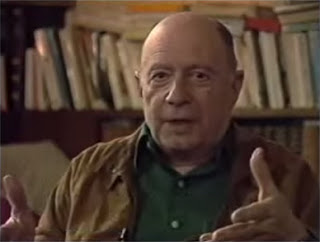Last week I perused Family Happiness by Leo Tolstoy. Tolstoy seems to have a knack for capturing the emotions and interpersonal dynamics of maturing love. Family Happiness is a short story narrated from the perspective of Marya, a young woman, as she grows up. The first half of the book is filled with the tension of love's beginnings while the second half of the book grapples with love's complexities and perseverance.
Near the end of the story, after living through an assortment of love's triumphs and tragedies, Marya listens as her husband, Sergey, wrestles them free from their past:
"Don't let us try to repeat life," he went on. "Don't let us make pretences to ourselves. Let us be thankful that there is an end of the old emotions and excitements. The excitement of searching is over for us; our quest is done, and happiness enough has fallen to our lot. Now we must stand aside and make room–for him, if you like," he said, pointing to the nurse who was carrying [their son] out and had stopped at the veranda door. "That's the truth, my dear one," he said, drawing down my head and kissing it, not as a lover any longer but an old friend.
There's something beautiful about Sergey's assessment of life. There is a conscious turning away from excitement toward happiness in the latter part of it. Richard Rohr describes this stage as "a bright sadness and a sober happiness". I don't think I'm not there yet. But I hope to be. Right now it seems strange to think of my wife in these terms. A friend? Certainly. An old friend? Not quite. Maybe there will come a day. Here is my takeaway from Sergey: I will try not to repeat life; instead, I will step aside and make room for my children as they learn to embrace the emotions and excitements of love's beginnings.






